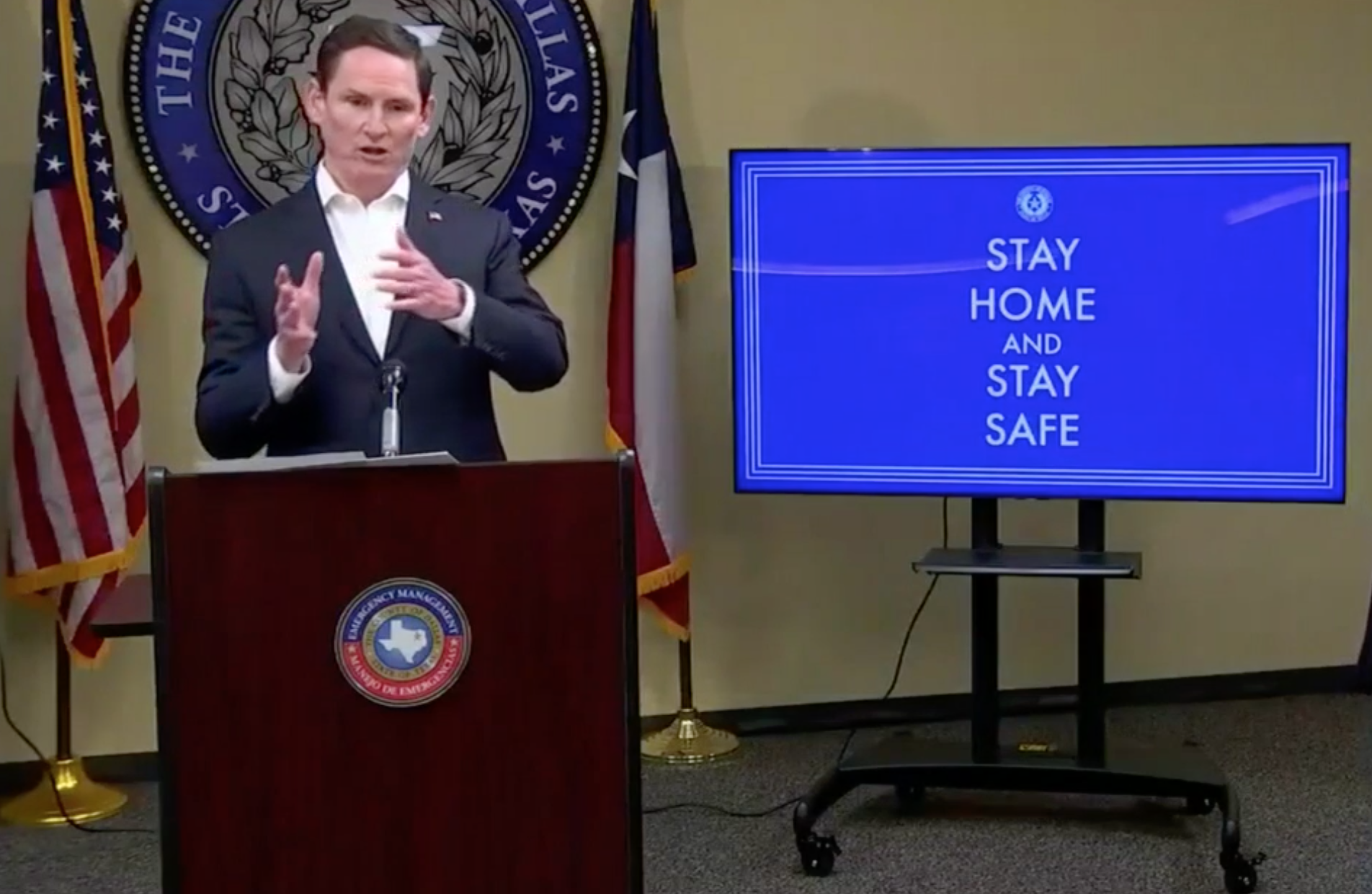On Tuesday, Dallas County announced more COVID-19 deaths—10—than any other 24-hour period since the arrival of the coronavirus. The patients were in their 30s all the way up to their 90s, most suffering from other chronic conditions, the broad age distribution of patient and frequent comorbidity that public health experts are using to tailor their response to the spread. The county says their deaths were caused from complications due to the coronavirus. Half were at a single nursing home, Brentwood in Pleasant Grove.
The day also brought some big announcements. First, our curve is flattening; we had just 89 new cases. The DFW Hospital Council told Clay Jenkins and his team that it didn’t believe the step-down hospital unit at the Kay Bailey Hutchison Convention Center would be necessary. Models from the Parkland Center for Clinical Innovation and Medical City showed that existing hospital campuses and facilities would be able to treat COVID-19 patients without the system being overrun.
Bed occupancy at area hospitals has stabilized around 50 to 55 percent and hospitals are receiving help from the military doctors that had planned to serve in the pop-up hospital. Jenkins made clear at his nightly press conference that those extra providers are needed.
In an interview with the Texas Tribune earlier that morning, Jenkins said he formally requested through the state the equipment that will multiply the county’s test capacity by 10 times. Jenkins filed a State of Texas Assistance Request (STAR) that would turn UT Southwestern Medical Center and Parkland Hospital into a mirror image of the University of Washington Medical Center, which served as a massive testing center as coronavirus spread through Seattle.
The state seeks federal approval after a STAR test is submitted. So Jenkins knows it’s a long shot, but he wants to increase testing to 6,600 a day. Parkland has the machines to perform tests with one-day turnarounds, but needs the RNA reagents—the chemical substance that indicates the presence of COVID-19—and the kits. UT Southwestern needs three machines in addition to the materials. If he pulls it off, Parkland will be able to perform 1,600 daily tests while UT Southwestern will perform 5,000.
Currently, there are two federal drive-thru testing sites that can collectively perform 500 daily tests, which are processed by two private labs with an average turnaround time of seven days. The county’s Parkland lab can do another 120 a day. (There are also tests done privately, separate from the county.) Because of this shortage, there isn’t a comprehensive way to know where the virus really is. Public health officials are working to prevent outbreaks in populations with underlying health conditions, knowing that they’re most vulnerable to its spread. Texas is, give or take the day, the worst or second-worst in per capita testing of its residents. Currently, our rate is 505 tests for every 100,000 people.
“Testing is what we desperately need right now,” Jenkins said. “Testing has become the biggest shortfall, even more so than bed capacity.”
Jenkins also announced a $250,000 donation from the Goldman Sachs Gives fund that will pay for a bulk purchase of personal protective equipment for area medical providers. Because of FEMA’s fee structures, the feds may match that amount by up to four times, according to Miguel Solis, the Dallas ISD school board trustee who’s working on Jenkins’ response team. Solis has headed up the initiative for the county, seeking private donations to aid in a bulk PPE buy. He said many providers are having trouble affording a big enough purchase and are losing out to other bidders.
“There is potentially a way to have these cash donations be tripled or quadrupled by federal monies,” Solis said. “There’s the potential for this to be exponentially bolstered by FEMA funds.”
The county’s COVID response fund currently has about $400,000 in private donations with a goal of raising more than $1 million. The county has already created its own supply chain for hand sanitizer, providing distilleries with the materials to make it. Anyone is welcome to donate.
Too, Jenkins said he joined with leaders in California to successfully lobby FEMA to allow local governments to spend federal dollars on food for food banks. He said 70 percent of the customers at the North Texas Food Bank were new clients, which has depleted the food banks. Now, millions will be able to pay for meals.
“The food distribution center that would have 300 families coming to it? Now it has 1,000,” Jenkins said. “That gives you an idea of the scope of the food insecurity.”
From here, the fight continues indoors. Jenkins was asked many times on Tuesday about when he thought the economy might be reopened. He said it appears the peak in COVID-19 cases will come at the end of April or early May and noted that his decision would be guided by science. He anticipates a staged reopening: “It’ll be a while before we can have a venue where there’s 20,000 people shoulder to shoulder,” he said. “But there are other jobs that may be able to come back online faster.”
But it’s far too soon to say when it is.






